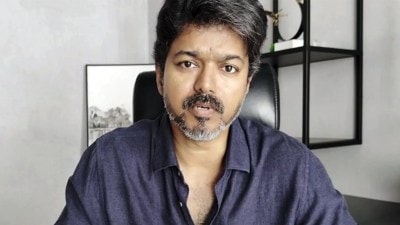📣 For more lifestyle news, click here to join our WhatsApp Channel and also follow us on Instagram
‘Nahi, kaise karegi; ye toh ladki hai’: Sania Mirza on how she dealt with societal pressure at the peak of her tennis career
Sania laid bare the kind of remarks her family endured: "She was young, she was playing, abhi kya, she's going to go out and play in shorts with the boys? Like this is a boys’ thing to do?"
 Sania Mirza opens up about the societal pressures she faced as a young girl in tennis (Express archive photo)
Sania Mirza opens up about the societal pressures she faced as a young girl in tennis (Express archive photo)At the peak of her career, Sania Mirza wasn’t just battling opponents on the tennis court—she was also navigating a deeply embedded societal resistance towards girls who dared to dream differently. Her journey, like that of many female athletes in India, was riddled with doubts, cultural stereotypes, and relentless commentary on what a girl should or shouldn’t do.
In a recent conversation with Masoom Minawala, Sania laid bare the remarks her family endured: “She was young, she was playing, abhi kya, she’s going to go out and play in shorts with the boys? Like this is a boys’ thing to do.” This, she explained, was the daily noise that echoed around her. But what set her story apart was not just her perseverance, but the unwavering support of her parents—who believed in her dream even when the world couldn’t fathom it.
What shone through in her reflection was the courage to be a little mad, as she put it. “It takes a little bit of crazy to do that… most successful people will tell you they were a little crazy to believe in themselves.”
She acknowledged that her parents shielded her from much of the societal negativity—so much so that she only understood the extent of it later in life, when she was already strong enough to withstand it. “They protected me so well from it that I only understood and heard it much later, when it didn’t bother me anymore.”
In a poignant moment, Sania recalled a gathering with other elite athletes—Nikhat Zareen, Saina Nehwal, and Joshna Chinappa—where they all realised something striking: despite coming from different religions, cultures, and social backgrounds, the questions and the doubts they were asked growing up were exactly the same.
That’s the story of so many women in sport in India. Regardless of where they come from, the message society sends is often rooted in the same disbelief: “The amount of times that I’ve heard ‘you can’t do this’—Nahi, kaise karegi? Ye toh ladki hai—like, you know how many times have we heard that in our lives, right? As young girls we’ve heard ‘no’ many more times than we’ve heard ‘yes’.
But Sania Mirza didn’t just prove these people wrong—she threw the whole rulebook out of the window.
According to counselling psychologist Srishti Vatsa, from a psychological standpoint, “this kind of prolonged stress impacts the nervous system. There is severe anxiety, sleep is disrupted, and the body begins to carry the trauma. There’s often a deep sense of isolation and a loss of narrative control.”
📣 For more lifestyle news, click here to join our WhatsApp Channel and also follow us on Instagram



- 01
- 02
- 03
- 04
- 05
























